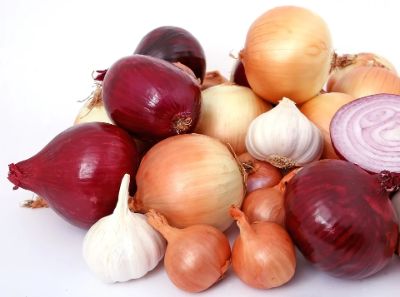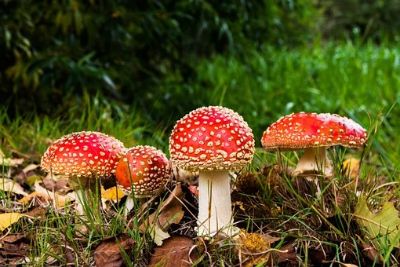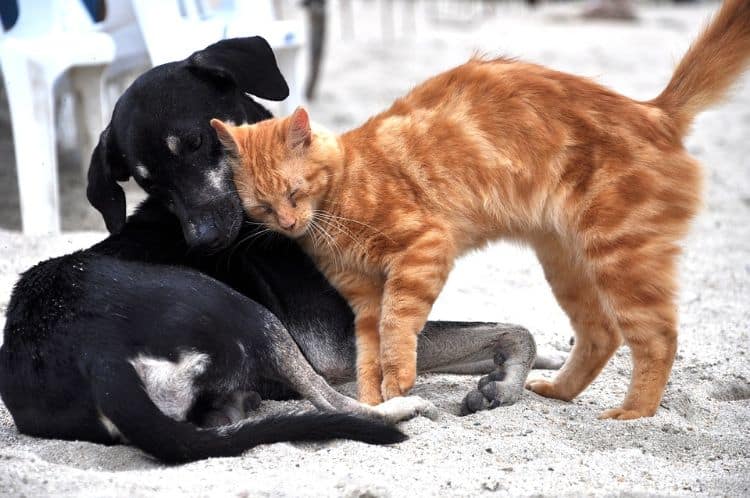Every year since 1961, the third week in March has been designated as National Animal Poison Prevention Week. This year, the week falls on March 20-26. More than 100,000 companion pets are accidentally poisoned each year, so the week is a good time for pet owners to review what types of substances can poison their pets, signs of pet poisoning, and what to do if they know or believe that their pet has been poisoned. In addition, all of March is Pet Poison Awareness Month, so the focus is the same all month long.
Many substances can poison dogs or cats. Some are also hazardous to humans, while others are used or consumed by humans regularly. Preventing pets from ingesting or even coming into contact with some of the most common toxic substances is the best way to prevent poisoning. These substances include foods, medications, plants, and household supplies.

Some of the foods that are toxic to dogs and cats include onions, garlic, avocados, chocolate, xylitol, and alcohol. While pets should not eat table scraps as a general rule, it isn’t uncommon for owners to give their pets a bite of whatever they are eating for dinner or to mix in a bit of leftover with their regular dog or cat food. Take care not to include any of the ingredients listed. While a small amount of onion will not typically cause an immediate reaction (but could cause potentially dangerous anemia), a bit of xylitol, which is a sugar-free sweetener, could cause seizures or death in a dog.
Any medications that are in the home could pose a hazard to a pet. Dogs and cats cannot open a medicine cabinet, of course, but dogs, in particular, can break open pill bottles left out, even if they have childproof tops. Even vitamins and supplements can be poisonous, so do not leave these out where your pet can get hold of them. The most dangerous human supplements for pets are those containing large amounts of iron (such as prenatal vitamins) and vitamin D. Many medications meant for humans are toxic for animals. Some common culprits when it comes to pet poisoning include NSAIDS (like ibuprofen or naproxen), acetaminophen, and medications for cholesterol, high blood pressure, birth control, and depression.
Pet owners may have lovely gardens in their yards and houseplants in every room, but it’s important to be aware of which plants are toxic to pets. While there are long lists of toxic plants depending on your pet’s species, some common ones are lilies, aloe, daffodils, nightshades, garlic, bird of paradise, and baby’s breath. Do not keep plants that are toxic where a pet can get into them, and closely supervise pets outdoors if you have any of them in your garden. Wild mushrooms and other plants that you did not intentionally put in your yard might also cause severe symptoms, so do not let your pets eat anything unfamiliar.

One last way that many pets become poisoned is by licking or eating household substances. While dogs and cats will not generally want to ingest caustic substances like bleach or ammonia spray, some items used in the household have a sweet taste. One well-known poison is antifreeze. If there is a car-dripping antifreeze in the garage, a pet can be drawn to its sweet scent and end up coming critically ill or worse. Another dangerous substance that pets can be attracted to is rat poison. There are various types of rat poison, some more dangerous than others. Keep these products well out of the reach of your pet if you have them.
Some signs that a pet might have been poisoned include excessive drooling or panting, vomiting, lethargy, a glazed or glassy look in the eyes, walking around as though drunk, trembling, and blood coming from the nose or mouth. All of these signs can also be signs of various serious and non-serious illnesses or conditions, so if your pet is exhibiting them and you don’t know whether they’ve consumed anything toxic, get in touch with your veterinarian or go to an emergency veterinary clinic immediately.
If you know or suspect that your pet has consumed a toxic substance, you can call the Animal Poison Control Hotline at (888) 426-4435. There is a consultation fee for using this service. You can also call your veterinarian if it is during normal business hours, but in many cases, your vet will advise you to call the poison control hotline, as there are experts there who know exactly what to do depending on the specific substance ingested and the symptoms being shown.
It can help to have both activated charcoal and syrup of ipecac on hand in case you need to give either one. Do not use these substances without the express advice of a veterinarian or the Poison Control Hotline, however.
Learn more about Pet Poison Prevention Week at the Pet Poison Helpline website.
Featured Photo Courtesy: Pixabay







